A security breach can cost a business thousands of dollars. Thankfully, VoIP offers an extra layer of security to help prevent hacks.
Encrypting data can prevent attackers from intercepting sensitive information. It’s also important to keep up-to-date with software updates.
Educating users about best security practices is also essential. This can include avoiding public Wi-Fi networks, knowing how to spot phishing attacks, and reporting suspicious activity.
Security & Privacy
VoIP is a modern communications solution that offers flexibility, scalability, and cost savings. However, just like any internet-connected device, VoIP phone systems can be hacked by cybercriminals looking to steal sensitive information or cause disruptions.
The good news is that most VoIP security threats are preventable by following simple cybersecurity best practices. Encryption is key – data or end-to-end encrypted messages are virtually impossible for hackers to intercept. Also, passwords should be enforced for desk phones and the web interface with a strong credential management policy that includes expiration complexity and requirements. Two-factor authentication is another essential security measure that should be offered to users. Navigate to this website to know more.
Additionally, users should be educated on recognizing phishing calls and scams. It’s also recommended that businesses close Port 80 on their router, which hackers can use to access a VoIP system. This will help limit the impact of DDoS attacks, a common attack that involves hackers using botnets (remotely-controlled computers/bots) to overload servers by flooding them with connection requests.
Call Routing & Mobility
Many VoIP phone systems encrypt data, which makes it much more difficult for hackers to steal valuable information from live calls. Ask your provider if they use Secure Real-time Transport Protocol (SRTP) or Advanced Encryption Standards (AES) for voice and text messaging transmissions.
Some VoIP providers also provide a range of other call center software features designed to improve business efficiency, like call logging and sharing of voicemail boxes. It’s important to know that all these features can only be as secure as your team’s passwords, so set strong credentials and require two-factor authentication (2FA) on desk phones and the admin portal.
Another important way to protect your VoIP system is to keep it updated with the latest patches and updates. You should also implement a NAT feature to mask private IP addresses, which blocks hackers from targeting your devices remotely. This is one of the easiest ways to prevent a breach and help stop cybercriminals in their tracks.
Call Recording & Analytics
Unlike traditional phone systems that require expensive hardware to install and maintain, VoIP platforms are essentially software. This means businesses pay a flat subscription fee to use the platform and don’t need an IT service member for regular maintenance. Plus, VoIP is remote-work friendly and easy to modify as companies grow or shrink in size.
The benefits of VoIP are endless, but there are security threats that can derail productivity and profits. These risks can damage a company’s reputation and bottom line, from credit card fraud to hacking voicemails.
The good news is that these dangers can be mitigated with the right security practices. For starters, choose a provider that offers encryption. This is essential because VoIP relies on the internet and is vulnerable to certain attacks, just like unencrypted Wi-Fi networks. You should also require your team to use strong passwords with lowercase and uppercase letters, numbers, and symbols. This will prevent hackers from accessing VoIP calls, voicemails, and other data.
Integrations
Integrated VoIP is a powerful tool that gives your customer service agents the data they need to connect with customers on a more personalized level. Having the full picture at their fingertips helps them become more empathetic and provide better experiences.
But like other software and devices, VoIP can be vulnerable to attacks. Working with a hosted VoIP provider that works around the clock and uses military-grade security is important. They should also regularly undergo independent security audits and update operating systems to guard against new vulnerabilities.
Unlike traditional phone lines that require dedicated physical lines, VoIP allows users to make local and long-distance calls using their internet connection. This eliminates costly line rental charges and enables you to take advantage of free calling in the continental and other low or no-cost calling abroad. And with many business VoIP providers, you’ll only be responsible for monthly network fees.


Comments are closed.